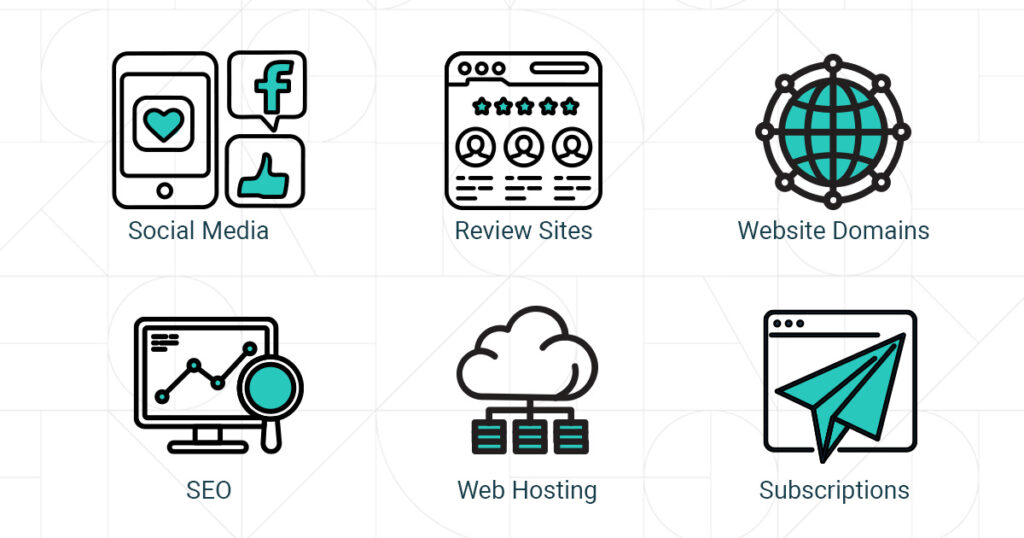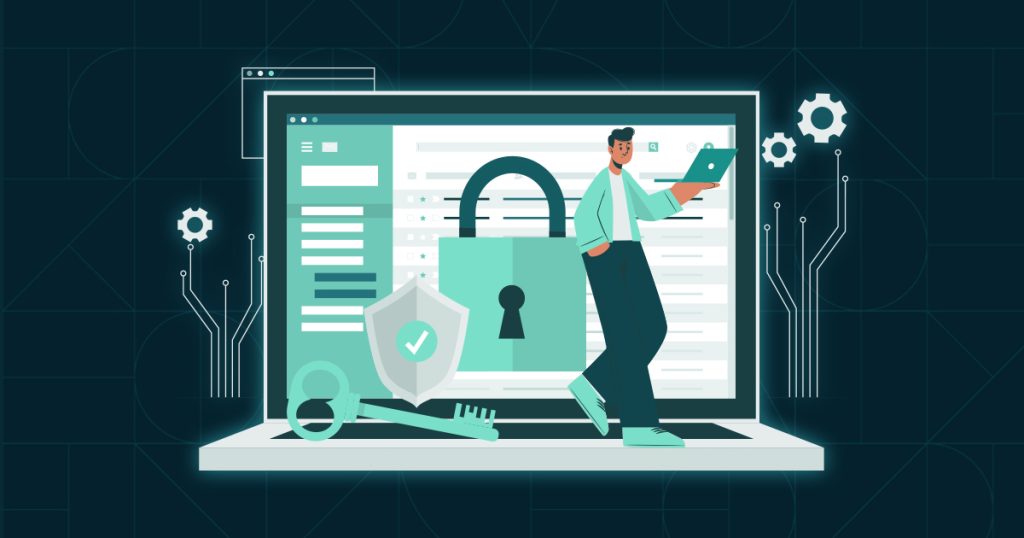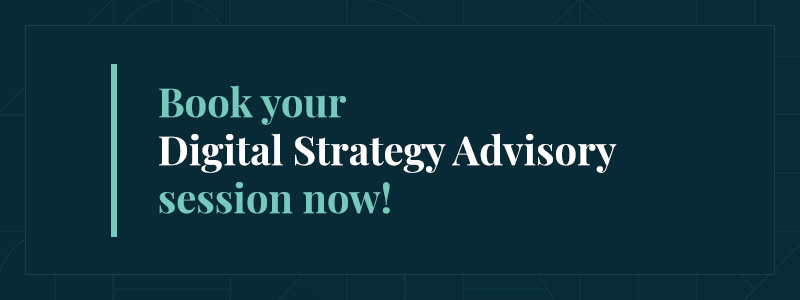A Digital Expenses Audit is critical in today’s competitive business landscape, especially during economic downturns. Managing digital expenses effectively is crucial in today’s competitive business landscape, especially during economic downturns.
Every aspect of your online presence, from domain names and website hosting to social media accounts, shapes your brand identity and engages your audience.
To help business owners optimize these digital investments, Netstripes has developed the Audit of Digital Expenses. This audit helps businesses take ownership of their digital assets, reduce costs, and ensure sustainable growth.
By streamlining spending, consolidating services, and maintaining control over digital assets, businesses can improve operational efficiency, secure their online presence, and achieve long-term financial stability.
Let’s closely examine what business owners can expect from the Digital Expenses Audit.
Table of Contents
But first, why should Ownership of Digital Assets Matter?

Digital assets serve as the cornerstone of your online presence and brand identity. Each asset is pivotal in shaping customer perceptions and driving business success, from domain names to website hosting and email services to social media profiles.
You gain autonomy over your online destiny and safeguard your brand integrity by ensuring full ownership and control of your digital assets.
Consider this scenario: A business relies on multiple service providers for its digital assets, leading to fragmented ownership and lack of control.
As a result, the business faces challenges in managing its online presence effectively and experiences inefficiencies in its digital operations, impacting its bottom line and hindering growth potential.
Streamlining Spending Across Multiple Providers
In addition to ownership, managing your spending across multiple providers is essential for optimising your digital investments and maximising ROI.
By consolidating services and eliminating redundant expenses, you can significantly reduce costs, improve operational efficiency, and enhance overall cash flow.
Imagine a business subscribing to multiple digital services from your domain hosting provider, resulting in bloated expenses and often unnecessary services that create complexities.

By conducting a comprehensive audit of digital expenditures and identifying areas for consolidation and optimisation, the business can significantly reduce costs and allocate resources more strategically, driving long-term financial sustainability.
How a Digital Expenses Audit Can Help
Digital Expenses Audit is a holistic approach to digital optimisation, encompassing a wide range of critical components essential for maximising the value of your digital investments.
From domain name registration to website hosting and email services to SEO strategies, our experienced team will thoroughly analyse your digital assets and expenditures, identify areas for improvement, and provide actionable recommendations to drive tangible results.
During the audit, we’ll focus on:
- Ensuring ownership and control of your digital assets, including domain names, website hosting, email services, and social media profiles.
- Streamlined spending across multiple providers by identifying redundant expenses, negotiating favourable terms, and consolidating services where possible.
- Optimising operational efficiency and driving cost savings through strategic management of digital assets and expenditures.
Why Digital Expenses Management Matters

Digital expenses encompass various elements that contribute to your online presence and brand identity.
As a business owner, you can mitigate risks and safeguard your online presence effectively by maintaining control over these assets and implementing proper security measures.
Regular monitoring and proactive management of these assets are essential for maintaining a secure and resilient digital infrastructure.
Essential Digital Checklist

To help you navigate the complex landscape of digital asset management, we’ve compiled a comprehensive checklist of essential assets and their associated management tasks:
Domain Name:
- Domain registrar account login credentials
- Access to domain management panel (e.g., GoDaddy, Namecheap)
- Ensure domain ownership information is up-to-date and accurate
- Renewal dates and auto-renewal settings
Website Hosting:
- Hosting provider account login credentials
- Access to hosting control panel (e.g., cPanel, Plesk)
- FTP (File Transfer Protocol) credentials for website file access
- Knowledge of server configuration and settings
- Ensure the hosting plan meets your website’s requirements (e.g., bandwidth, storage)

Email Hosting:
- Email hosting provider account login credentials
- Access to email management dashboard (e.g., Gmail for Business, Microsoft 365)
- Configuration settings for email accounts (e.g., aliases, forwarding)
- Knowledge of spam filtering and security settings
- Regularly review email usage and deactivate unused accounts
SSL Certificate:
- Access to SSL certificate provider account (if applicable)
- Knowledge of the SSL certificate installation process
- Regular renewal and monitoring of SSL certificate validity
- Ensure SSL is properly configured for website security

Website Content Management System (CMS):
- CMS admin panel login credentials (e.g., WordPress, Joomla)
- Knowledge of CMS settings and configurations
- Regular updates and backups of website content and plugins/modules
Social Media Accounts:
- Login credentials for all social media platforms associated with your business (e.g., Facebook, Twitter, LinkedIn, Instagram)
- Ensure ownership and administrative access to company profiles/pages.
- Monitor and manage social media posting and engagement regularly.
Analytics and Tracking Tools:
- Access to website analytics tools (e.g., Google Analytics, Adobe Analytics)
- Ensure tracking codes are correctly implemented on your website
- Monitor website traffic, user behaviour, and conversion metrics

Backup and Recovery Solutions:
- Implement automated backup solutions for website files and databases
- Store backups securely in off-site locations or cloud storage
- Test backup and recovery procedures regularly to ensure data integrity
Legal Documentation:
- Maintain copies of domain registration, hosting agreements, and SSL certificates
- Keep records of website terms of service, privacy policy, and other legal documents
- Ensure compliance with data protection regulations (e.g., GDPR, CCPA)
Access Control and Permissions:
- Implement proper access control measures for all digital assets
- Limit access to sensitive information and administrative functions to authorised personnel only
By mastering the management of these digital assets and implementing proper security measures, you can take control of your online presence and drive business success in the digital age.
Conclusion
Business owners must use effective digital asset management to safeguard their online presence and drive success in today’s digital landscape.
By maintaining control over essential assets and implementing proper security measures, you can mitigate risks, optimise efficiency, and unlock the full potential of your online presence.
With proactive management and regular monitoring, you can ensure your digital infrastructure remains secure, resilient, and poised for growth.
Remember, your digital assets are valuable expenses that require careful attention and strategic management.
By taking charge of ownership and implementing best management and security practices, you can arrest the drain on your cash flow and pave the way for long-term success in the digital era.




